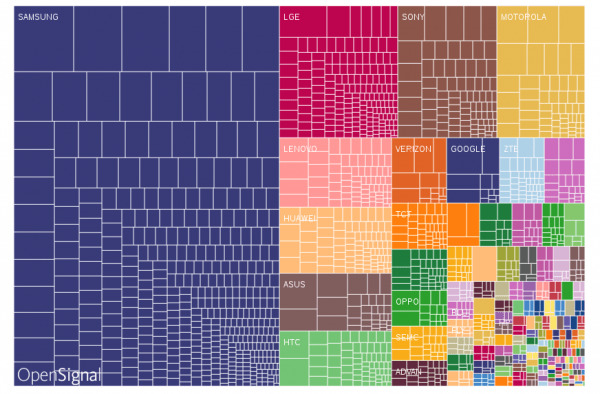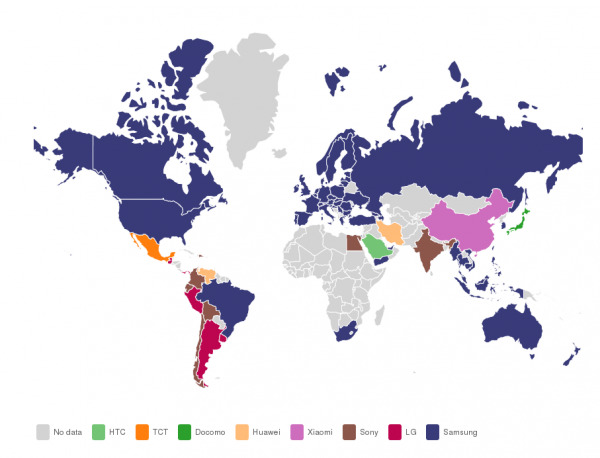Android Fragmentation Is A Beautiful Mess
In 2012, OpenSignal, a company specializing in rating wireless signals, published its first report on the state of Android fragmentation, detailing the huge diversity in terms of devices, brands, and capabilities. Three years later, it is doing so again. How much has changed and how have things fared? As you might have guessed, the answer isn't a simple case of black or white. Fragmentation on Android is a two-edged sword that brings both choice and headaches and is unlikely to change dramatically any time soon.
Let's take a look at the raw figures first. Of the last 682,000 devices that used its OpenSignal app, the same total it has been using year after year for fairness' sake, it counted 24,093 unique devices. That's more than 24,000 models in the market. In comparison, last year only clocked 18,796. Those devices come from an astounding 1,294 manufacturers, something OpenSignal noted not seeing in 2012. Although Samsung's share in that market went from 43 to 37.8 percent, it still remains the top vendor in terms of number of devices.

Actually, it also remains the top vendor in terms of global adoption per country.

This fragmentation is, at least at face value, advantageous to consumers. They have a wide variety of models and features to choose from. Of course, there's also the so-called irony of choice, where too many options can also paralyze you. There is sometimes very little distinction between some models, varying only in size, this or that small feature, design, or even just brand.
The real headache, however, is for the developers that are also critical in the success of a mobile platform. While Android does give developers a common set of expectations, it doesn't account for the discrepancies in actual features. In some cases as well, Android itself is the source of confusion, as those 24,000 devices are not all running on the same Android version. Developers have to contend with devices with different screen sizes, different Android versions, and different number of sensors.
Compared to iOS, the fragmentation in the Android might seem horrible, but that is exactly the freedom that allowed the platform to conquer the world. Some of it, like Android versions and capabilities, are getting better though some, like display sizes and the number of distinct devices, are hardly going away.
SOURCE: OpenSignal



